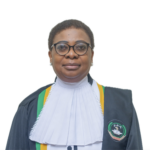25 October
What’s in a Joke? Humor in Free Speech Jurisprudence and Content Moderation – Toolkit Launch and Roundtable
Humor is often at the center of complex legal cases and content moderation decisions regarding free speech and its limits. How can judges – or social media platforms – navigate the gray areas between satire and defamation, provocative jokes and hate speech, or parody and copyright violation? These challenges have become increasingly daunting in the digital age, with ironic ambiguity and context collapse playing a key role in online communication. Moreover, generative AI (e.g. deepfakes) has further muddled the line between legitimate creative reuse on the one hand (as in parody or satire), and the violation of personal or IP rights on the other.
These issues lie at the center of the forthcoming toolkit What’s in a Joke? Assessing Humor in Free Speech Jurisprudence and Content Moderation, authored by Alberto Godioli (University of Groningen), Sabine Jacques (University of Liverpool), Ariadna Matamoros Fernández (Queensland University of Technology), and Jennifer Young (University of Groningen) with funding from the Dutch Research Council (NWO Impact Explorer grant). The toolkit is primarily intended for legal professionals and Trust & Safety agents, with the aim of helping them establish an informed, well-balanced, and consistent approach to humorous expression in light of both human rights law and interdisciplinary humor research. However, it will also be of interest to policymakers and advocacy groups, by addressing topical questions concerning both the protection of lawful humorous expression and the adjudication of illegal or borderline (albeit superficially humorous) content. Lastly, it aims to assist humor creators of all types – from comedians and cartoonists to ‘ordinary’ social media users – in gaining awareness of their rights, while also highlighting the links between certain types of derogatory humor, hate, and harm.
On October 25, 2024, the toolkit authors will join us at Columbia University to present an advanced draft of the toolkit and collect feedback before finalizing its publication, which is scheduled for January 2025. The authors’ presentation will focus on the four main sections of the toolkit: I. Interpreting humor in context, II. Authoritarian crackdowns on humor and satire, III. Humor, online harm and content moderation, and IV. Humor and Intellectual Property law.
The presentations will be followed by an open Q&A and a roundtable with four members of the project’s Advisory Board, namely Lady Justice Stella Isibhakhomen Anukam (African Court on Human and Peoples’ Rights), JUDr. Barbora Bukovská (ARTICLE 19), Mehdi Benchelah (UNESCO), and Judge Darian Pavli (European Court of Human Rights).


This event is co-sponsored by Columbia Global Freedom of Expression, The University of Groningen, The Dutch Research Council (NWO), and The Forum for Humor and the Law (ForHum).
● 2:30pm – 2:45pm: Walk-in and welcome
Toolkit presentation and open Q&A
2:45pm3:45pm |
Speakers:
Moderator:
|
● 3:45pm – 4:00pm: Coffee break
Roundtable and Q&A on humor and free speech
4:00pm5:00pm |
Participants:
Moderators:
|
● 5:00pm – 5:30pm: Reception
Alberto Godioli
Associate Professor
University of Groningen
Hawley Johnson
Associate Director
Global Freedom of Expression, Columbia University
 Lady Justice Stella Isibhakhomen Anukam, Judge of the African Court on Human and Peoples’ Rights
Lady Justice Stella Isibhakhomen Anukam, Judge of the African Court on Human and Peoples’ Rights
Lady Justice Stella Isibhakhomen Anukam is a national of Nigeria. She was elected Judge of the African Court on Human and Peoples’ Rights in July 2018 for a term of six years and reelected for another term of six years in July 2024. She serves as a member of several professional bodies, including Panel of Conciliators of international Centre for Settlement of investment Disputes (ICSID), International Bar Association (IBA), African Bar Association, International Federation of Female Lawyers, Institute of Chartered Secretaries & Administrators (ICSA) London, Chartered Institute of Arbitrators and Institute of Professional Negotiators and Mediators. She serves as a member of the African Women Lawyers Association (AWLA), and the Institute of Chartered Secretaries & Administrators, Nigeria (ICSAN) and a former Chairperson of the Abuja Chapter. Lady Justice Stella I Isibhakhomen Anukam is also the former Director, special programs, Nigerian Institute of Advanced Legal Studies, Abuja, Nigeria, and former Director, International and Comparative Law department of the Federal Ministry of Justice, Nigeria.
 Mehdi Benchelah, Senior Project Officer, Freedom of Expression and Safety of Journalists Section, UNESCO
Mehdi Benchelah, Senior Project Officer, Freedom of Expression and Safety of Journalists Section, UNESCO
Mehdi Benchelah, Senior Project Officer, Section for Freedom of Expression and Safety of Journalists, UNESCO. Mehdi Benchelah is a senior project officer at UNESCO and is coordinating the Rule of Law, Policy and Freedom of Expression Team within the Section for Freedom of Expression and Safety of Journalists. He coordinates the Judges’ Initiative, a global strategy for the judiciary systems on freedom of expression, access to information and safety of journalists, by fostering strategic partnerships with Regional Human Rights Courts, Supreme Courts, Judicial Training Institutes and Prosecutors’ Offices across the world. He also coordinates the implementation of an initiative to train law enforcement officers on human rights, freedom of expression and safety of journalists’ related issues, as well as their relationship with the media. He is also in charge of the Media and Elections programme to tackle disinformation and violence during election periods while respecting international standards on freedom of expression. Mehdi Benchelah was posted in Haiti from 2010 to 2011 following the 2010 earthquake to coordinate UNESCO emergency programmes for the recovery of the media sector and the initiatives to support the culture sector. He was the Head of UNESCO Office in Tunisia from 2012 to 2014 following the Revolution and democratic transition, and coordinated the support of the media law reform, capacity-building activities for the media including in times of election, and other activities to support national authorities and civil society organizations. Prior to joining UNESCO, Mehdi worked for a decade as a freelance reporter covering international affairs and conflicts in the Arab region, Africa and Latin America. Notably, he covered the Algerian civil war, the Second Intifada in Palestine and Israel, the Iraq war following the United States’ 2003 invasion, and the drugs war in Latin America. He was the permanent correspondent of Radio France and the leading magazine Le Point while he was based in the Gaza strip covering the Israeli-Palestinian conflict and Middle East news from 1998 to 2000. A graduate of the Law School of Sorbonne University Paris I with a Masters’ degree in Law, he is the author of non-fiction: Le Pèlerin de Jerusalem (with Jean Lecuyer, J.C Lattes publishing 2000), Journal d’Algérie 1991-2001 (with Michael Von Graffenried, 2003) and fictions books: Les flamboyants de Gaza (Cherche Midi publishing 2004) and Bassora-Express (Cherche Midi publishing 2006).

Barbora Bukovská, Senior Director for Law and Policy, ARTICLE 19, UK
Barbora Bukovská has been ARTICLE 19’s Senior Director for Law and Policy since 2009. She leads on the development of all ARTICLE 19 policies and provides legal oversight and support to legal work across the organization. Barbora has an extensive experience working with various organisations on a range of human rights issues, including protection from discrimination, access to justice, deprivation of liberty, reproductive rights and community development. She also initiated about 50 cases at the European Court of Human Rights on these issues and has published a number of reports and articles on a broad range of human rights. From 2006 to 2008, she was the Legal Director at the Mental Disability Advocacy Centre, an international organization working on the rights of people with disabilities in Europe and Central Asia. She graduated from the Law School of Charles University in Prague and has earned a doctorate degree in law in Slovakia and an LLM degree from Harvard Law School. In 1998 and 1999, she was a visiting scholar at the Columbia University Law School in New York.
Alberto Godioli, Associate Professor at the University of Groningen
Alberto Godioli is Associate Professor at the University of Groningen (the Netherlands), and program director of the Netherlands Research for Literary Studies (OSL). His research focuses on humor and free speech jurisprudence from an interdisciplinary perspective, and he is principal investigator of a five-year international project on this topic (Humor in Court, NWO Vidi Grant, 2022-2027). In 2022, together with Prof. Laura Little, he founded ForHum: Forum for Humor and the Law – a global platform bringing together lawyers, humor scholars, artists and other key actors interested in humor, freedom of expression and related legal matters. His publications on the subject include Humor and Free Speech: A Comparative Analysis of Global Case Law (with Jennifer Young; Columbia Global Freedom of Expression, Special Collection, 2023), Laughing Matters: Humor, Free Speech and Hate Speech at the European Court of Human Rights (with Jennifer Young and Matteo Fiori; International Journal for the Semiotics of Law, 2022), and the special issue Humor and the Law: The Difficulty of Judging Jests (co-edited with Brigitte Adriaensen, Andrew Bricker and Ted Laros, HUMOR, 2022).
 Sabine Jacques, Senior Lecturer in Intellectual Property Law at the School of Law and Social Justice of the University of Liverpool
Sabine Jacques, Senior Lecturer in Intellectual Property Law at the School of Law and Social Justice of the University of Liverpool
Dr. Sabine Jacques is based at the School of Law and Social Justice of the University of Liverpool (UK) where she specialises in intellectual property (IP) law, with a focus on reuse culture, cultural diversity, content moderation, and the creative industries. Her current research explores two key areas: first, how intellectual property law accommodates parodies, pastiches, caricatures, and satire; and second, identifying new ways to protect human creativity in an AI creative landscape. Her work is published in leading peer-reviewed academic journals, including the European Intellectual Property Review, Intellectual Property Quarterly, and GRUR International. Sabine is also the author of The Parody Exception in Copyright Law (OUP, 2019), which informed EU policymakers and played a role in shaping the UK’s parody exception. She is an expert analyst for the EU Law Live project, serves on the advisory board of the Network for Empirical Legal Studies in IP (NELSIP), and is a member of ForHum, where she regularly provides updates on humour and IP developments.
 Hawley Johnson, Associate Director, Columbia Global Freedom of Expression
Hawley Johnson, Associate Director, Columbia Global Freedom of Expression
Dr. Hawley Johnson is the Associate Director of Columbia Global Freedom of Expression. Since 2014 she has managed the development of the Case Law Database which hosts analyses of seminal freedom of expression court rulings from more than 130 countries. Hawley has over twelve years of experience in international media development both academically and professionally, with a focus on Eastern Europe. From 2013-2014 she worked with the award-winning Organized Crime and Corruption Reporting Project to launch the Investigative Dashboard (ID), a joint effort with Google Ideas offering specialized databases and research tools for journalists in emerging democracies. Previously, as the Associate Director of the Media and Conflict Resolution Program at New York University, she oversaw the implementation of over eight US government sponsored media development programs in eleven countries. In 2012, she completed her Ph.D. in Communications at Columbia University’s Graduate School of Journalism. Her dissertation – a study of the evolution of media development policies in Bosnia-Herzegovina, Kosovo and Macedonia – was grounded in extensive field research in the region. She has a M.A. from Columbia University’s School of International and Public Affairs and a B.A. in International Affairs from the School of International Service at American University.
 Laura Little, James G. Schmidt Professor of Law, Temple University Law School
Laura Little, James G. Schmidt Professor of Law, Temple University Law School
Professor Laura E. Little serves as the James G. Schmidt Chair in Law. She specializes in federal courts, conflict of laws, and constitutional law. She teaches, lectures, and consults internationally on these subjects and is routinely engaged for training judges as well as for speeches at academic and judicial conferences. She is the author of numerous books and articles, including a sole-authored casebook, Conflict of Laws (2d ed. Aspen Wolters Kluwer 2018), two treatises: Federal Courts and First Amendment, both in Aspen Wolter Kluwer Publishing’s Examples and Explanations series, and Guilty Pleasures: Law and Comedy in America (Oxford 2019). Among her many awards for teaching and scholarship are several law school awards, a University-wide Lindback award, and Temple’s highest award for teaching, the University Great Teacher Award. The American Law Institute appointed Professor Little in 2014 to serve as Associate Reporter, Restatement (Third) of Conflict of Laws. Before entering academia, Professor Little practiced law in Philadelphia, litigating commercial cases and representing the print media in First Amendment cases. Prior to her law practice, Professor Little served as a law clerk to Chief Justice William H. Rehnquist, Supreme Court of the United States (October Term 1986) and Judge James Hunter III of the United States Court of Appeals for the Third Circuit (1985-1986).
 Ariadna Matamoros-Fernández, Senior lecturer in Digital Media in the School of Communication at the Queensland University of Technology
Ariadna Matamoros-Fernández, Senior lecturer in Digital Media in the School of Communication at the Queensland University of Technology
Dr. Ariadna Matamoros-Fernández researches social media cultures, platform governance, online harms, and algorithmic systems. She is a Senior lecturer in Digital Media in the School of Communication at the Queensland University of Technology (QUT), Chief Investigator in the QUT Digital Media Research Centre (DMRC), Associate Investigator in the national ARC Centre of Excellence for Automated Decision-Making and Society, and an ARC Discovery Early Career Research (DECRA) Fellow (2023-2026) (DE230101558). Her DECRA project examines harmful humour’s impact on women’s wellbeing online, how it is poorly managed by social media platforms and has not been integrated into online safety regulation and policy. The project brings together sociocultural theory, social media analysis, and interviews to better understand the dynamics of harmful humour online. Ariadna’s research has been published in New Media & Society; Information, Communication & Society; Television & New Media; Internet Policy Review; Feminist Media Studies and other international, peer-reviewed journals. She is co-author of a book on WhatsApp (Polity, with Amelia Johns and Emma Baulch). Ariadna holds degrees in Journalism from the Autonomous University of Barcelona (UAB), a Master of New Media and Digital Culture from the University of Amsterdam (UvA), and a PhD in Digital Media from the Queensland University of Technology (QUT).
 Darian Pavli, Judge at the European Court of Human Rights
Darian Pavli, Judge at the European Court of Human Rights
Judge Darian Pavli has served as judge of the European Court of Human Rights, elected in respect of Albania, since January 2019. Before joining the Court, Judge Pavli had an extensive human rights law practice, which included litigation before leading international and regional human rights mechanisms. His work maintained a strong focus on freedom of expression, civil rights, and national security-related restrictions of rights, among others. He has also contributed to various standard-setting efforts in Europe, the Americas and other regions. During his tenure at the Court, Judge Pavli has participated in hearing a number of cases involving various aspects of gender-based violence. In recent years, Judge Pavli advised the Parliament of Albania on matters related to major justice reforms, as well as defamation and freedom of information law reforms. Judge Pavli holds advanced law degrees from Central European University and New York University Law School.
 Jennifer Young, Postdoctoral researcher at the University of Groningen
Jennifer Young, Postdoctoral researcher at the University of Groningen
Dr Jennifer Young is a postdoctoral researcher at the University of Groningen working on the Humour in Court project financed by the Dutch Research Council. She is interested in humour, free speech and the regulation of hate speech and implicit speech. She has recently co-authored articles with Dr Alberto Godioli on humour and the law and a report for Columbia Global Freedom Expression on Humour and Free Speech. She manages the legal database for ForHum and is a regular blog contributor to the platform. Her background is in broadcast media regulation. She worked for many years as an editorial consultant and trainer for a number of British and international broadcasters and production companies. Previously she was a Senior Editorial Advisor for the BBC and UKTV where she specialised in comedy, harm and offence. Jennifer holds a degree in English and Latin Literature, a Master’s degree in Media Law, Policy and Practice, a Master’s degree in Research (Social Sciences) and a PhD in Law (with a focus on comedy and the chilling effect of media regulation).
CGFoE Special Collection on “Humor and Free Speech: A Comparative Analysis of Global Case Law”
“Humor and the Law: A Living Bibliography” – a constantly updated list of books, articles, and other scholarly resources on humor and the law, prepared by The Forum for Humor and the Law (ForHum).

